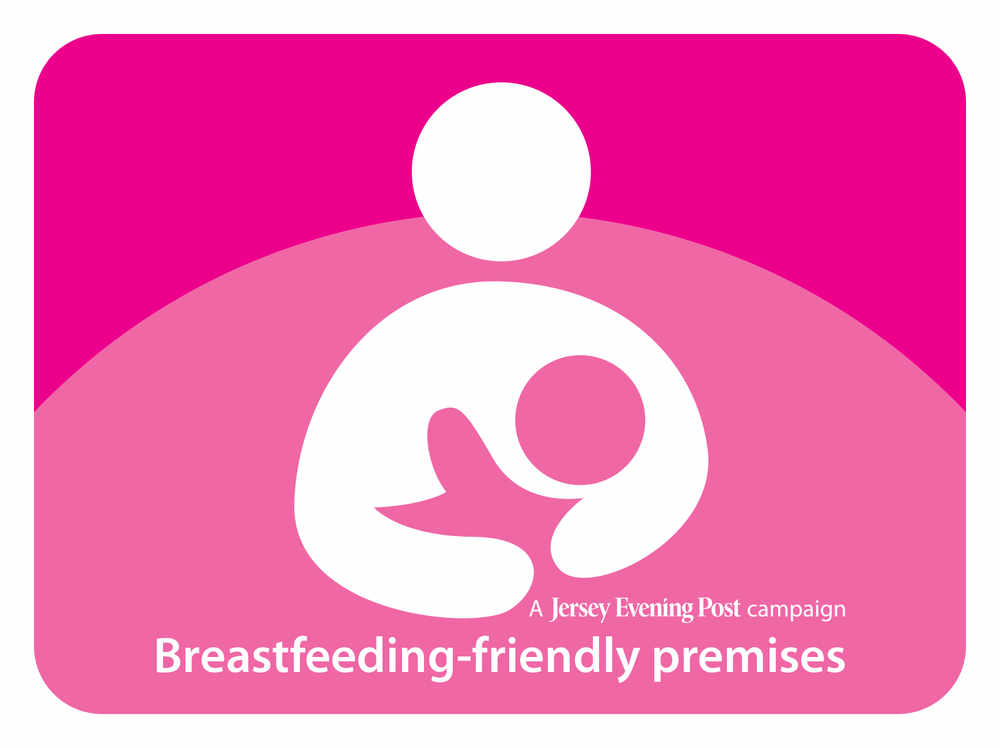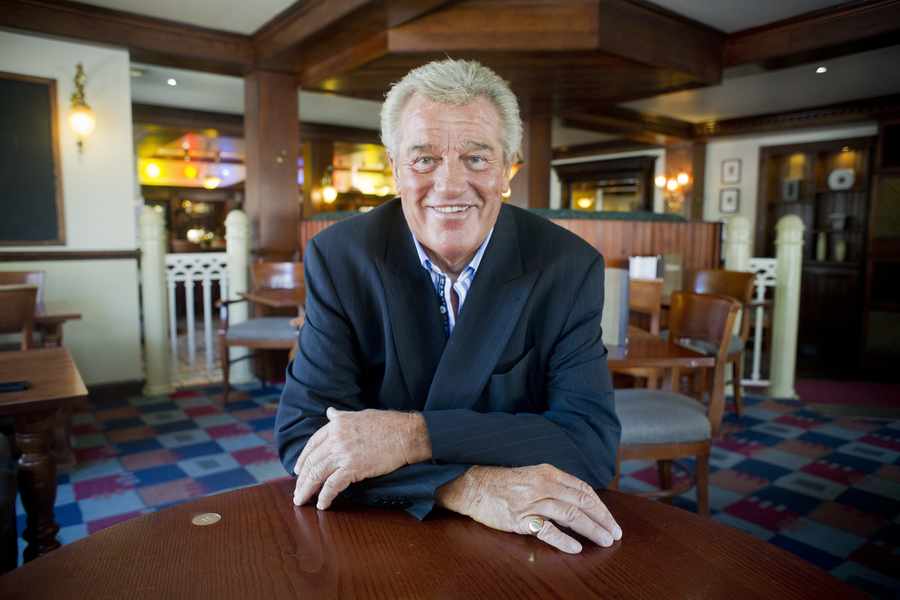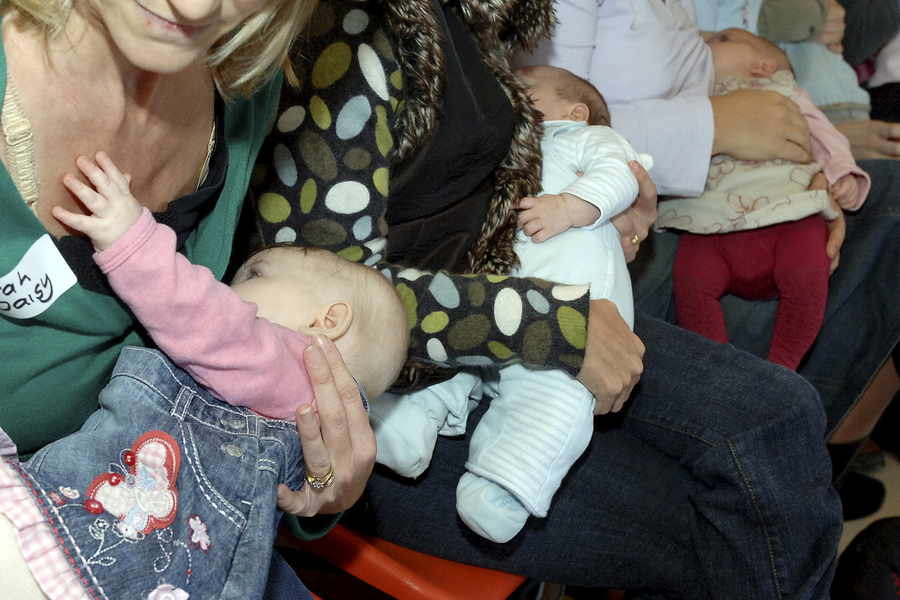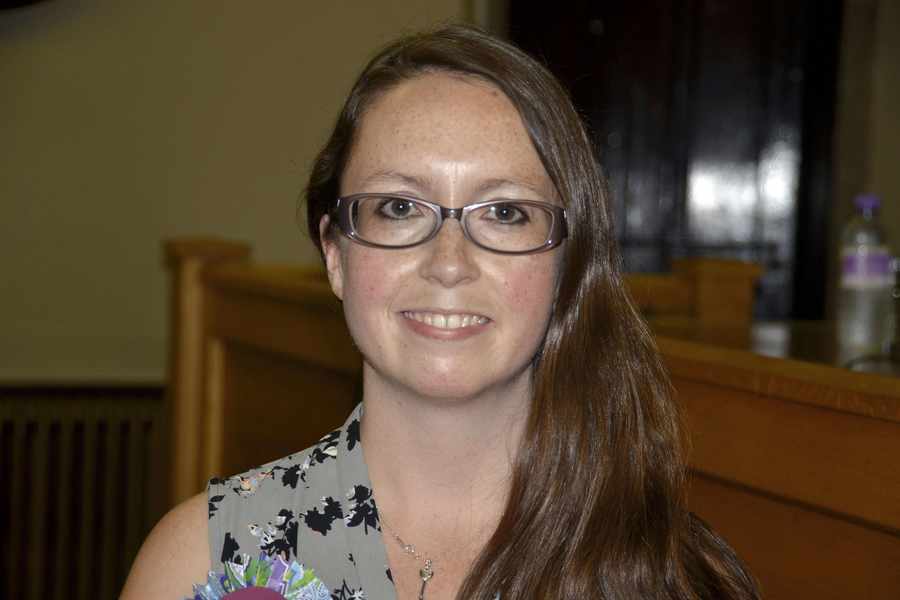- Jersey cafés and restaurants have confirmed support for breastfeeding mums
- Issue was lively on social media this week with sex discrimination law only protecting babies under six months
- Deputy Louise Doublet has lodged an amendment to make it two years
- What do you think? Take part in our poll below
SOME of the Island’s biggest café and restaurant chains have said that they have no problem with mothers who breastfeed in public as long as the woman is ‘discreet’.
The response comes after it was reported yesterday that mothers who breastfeed babies aged six months or over in public will have no legal redress if they are asked to a leave an establishment, under a draft law that is due to be debated in two weeks’ time.

The proposed sex discrimination regulations give protection for only the first 26 weeks of a child’s life.
However, a number of restaurant and café owners have said that breastfeeding is ‘welcomed’ and that it is a ‘natural’ part of motherhood.
David Le Quesne, managing director of Randalls, which owns more than 40 pubs and bars across the Island, said: ‘Our policy in our managed estate is to allow a woman to breastfeed their child up to whatever age the child requires breastfeeding. We would expect the mother to use some discretion, which I am quite sure all mothers who wish to breastfeed in public places would naturally do.’
Mr Le Quesne also added that he felt that there was ‘no need’ for more legislation that is being proposed on the subject.


Robert Jones, one of the directors of Jersey Pottery, said that as long as mothers were discreet while breastfeeding he did not see a problem.
‘I think politicians should be spending more time making laws on other things. Ninety-nine per cent of all women who breastfeed – which is the most natural thing to do – are discreet.
‘We are in 2015 and people should not be restricted. We have signs up in our cafés to say that breastfeeding is welcome. In 30 years of running restaurants and cafés it has never been a problem,’ he said.
In 2011 the JEP’s Parenting Page launched a campaign to get more shops and businesses around the Island to be breastfeeding friendly. Once businesses had agreed to support the campaign, they were provided with a sticker to put in their window identifying that breastfeeding was welcome on their premises. The pink sticker is on display in a number of the Island’s cafés, shops, charities and organisations.
Meanwhile, St Saviour Deputy Louise Doublet, a former teacher, believes that the proposed regulations did not go far enough to protect a woman’s right to breastfeed in public. She has lodged an amendment to extend the age limit to two years old.


‘Why do we even need a law for this? Show me where it says you cannot breastfeed at any age and then tell me why we are reducing the time to just six months.’
Darius Pearce Jeweller
‘I do not think there should be an age limit in place with regard to protecting the right to feed in public. Six months is the minimum recommended time for exclusive breastfeeding, not the maximum! How long a child is breastfed for is purely the business of the mother and child – it is natural and beneficial to both mother and child to feed for as long as both wish to continue.’
Lindsay Rk
Judith Massarelli Brine
‘Just leave all breastfeeding mothers alone to feed their baby when and whereever they like. It is a natural thing to do.’
Valerie Le Blancq
Africa
In most areas of Africa breastfeeding in public is accepted. However, in some areas of South Africa it is still frowned upon.
France
Public breastfeeding is legal and widely accepted.
Iceland
Public breastfeeding is widespread and uncontroversial.
Netherlands
Public breastfeeding is common and widely accepted in the Netherlands. There are no laws against public breastfeeding. Dutch law states that when an employee wishes to breastfeed her baby the employer is obligated to provide for the first nine months after the birth a suitable nursing room and allow for 25 per cent of work time to be spent on feeding the baby or expressing milk while on pay.
New Zealand
Breastfeeding is encouraged and public breastfeeding is common. Bottle-feeding in New Zealand has been so widely discouraged that it is thought that public bottle-feeding might make a mother feel more uncomfortable than public breastfeeding. Many shopping centres provide rooms where mothers may change and feed their babies.
United Kingdom
Breastfeeding in public in the UK is protected under the Sex Discrimination Act 1975. The Equality Act 2010 also states that a business must not discriminate against a woman who is breastfeeding a child of any age in a public place.






